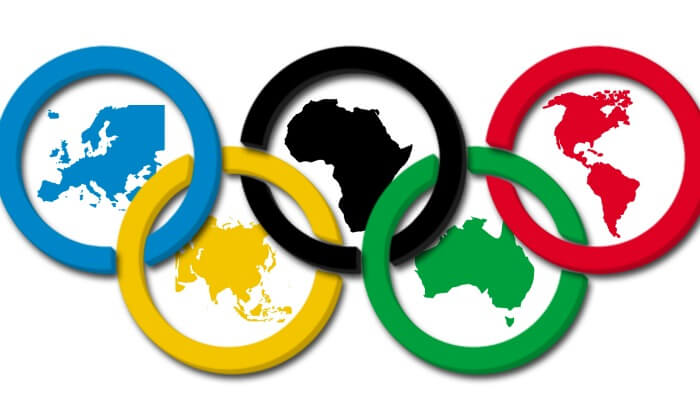The Olympic Games are the largest sporting event in the world. 193 countries participated in the most recent Olympics held in Tokyo. The history of the Olympics can be divided into three parts.
The first part: the beginning of the Olympics. The Olympic Games originated in ancient Greece as far back as 3,000 years ago. The first written records of the ancient Olympic Games date to 776 B.C.E. A cook named Coroebus won a 192-meter footrace called the stade and became the first Olympic champion. The ancient Olympics were held every four years between August 6 and September 19 during a religious festival honoring Zeus. The Games were named for their location at Olympia, which is located in southern Greece. The Olympic Games were really popular so many historians started to measure time using the four years between Olympic Games as markers.
The second part: the Dark ages and the resurrection of the Olympics. After the Roman Empire conquered Greece in the mid-2nd century B.C.E., the Games continued, but their quality decreased. In 393 C.E., Emperor Theodosius I, a Christian stopped all “pagan” events, ending the Olympic Games after 12 centuries. After the Olympic Games were banned, it took 1500 years for it to revive. The man responsible for its revival is Baron Pierre de Coubertin of France. He was inspired with the idea of creating the modern Olympic Games after visiting the ancient Olympic site. Two years later he created the International Olympic Committee (IOC), which was very important to the Olympic system.
The Last part: the Olympics in the present. The Olympics truly took off as an international sporting event after 1924 when the 2004 Summer Olympics returned to Athens for the first time in more than a century. Nearly 11,000 athletes from a record 201 countries competed in the Athens Games. To mark this occasion, the shotput competition was held at the site of the classical Games in Olympia.
I think the history of the Olympics is very distinct. I am looking forward to the 2024 Paris Olympics.
By: Matthew Park


